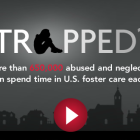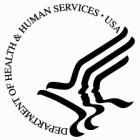
New Toolkit Issued to Help Providers Measure Trauma With ACES Survey
|
A new toolkit is out that aims to help services providers give a survey about traumatic childhood experiences that are linked to negative effects on health and well-being.
Juvenile Justice Information Exchange (https://jjie.org/tag/child-welfare/page/4/)

A new toolkit is out that aims to help services providers give a survey about traumatic childhood experiences that are linked to negative effects on health and well-being.

Each year, more than half a million children come into contact with the foster care system in the United States. Of those, 80 percent suffer from severe emotional problems, according to a report by the American Academy of Pediatrics. Less than 50 percent receive their high school diploma, and far fewer go into any type of post-secondary education. Those are some of the statistics, but what’s it’s like to walk in their shoes? What’s it like to face the tough challenges and choices these young men and women deal with on a daily basis?

After years of focusing on the safety of children, the nation's juvenile courts are shifting to a more holistic approach that takes into account the emotional, social and academic well-being of at-risk youth. That effort, which has been underway for at least a year, will be showcased Thursday during a webcast moderated by David Kelly, head of the federal Department of Health and Human Services child protection programs.
The crux of the webcast, which starts at 2 p.m. EDT, is to explore how the courts, which are so used to patrolling a child's safety, can attend to the mental, social and physical "well-being" of a child. More precisely, the effort will vet 14 specific measurements that were developed by a committee last summer to ensure the courts are meeting every need of a child - not simply plucking them from dangerous homes or removing risky parents from their lives. About 400 people, many of them judges, attorneys and court administrators, are expected to tune into the webcast. Also participating will be Gene Flango and Nora Sydow of the National Resource Center and National Center for State Courts; Evan Klain, who is director of child welfare for the ABA's Center on Children and the Law; Associate Judge Robert Hofmann of Mason County, Texas; and Sandra Moore, head of Pennsylvania's state office of Children and Families in the Court.

State legislatures across the United States have been busy this year with youth and juvenile justice-related legislation. While there have been some failures, such as the last-minute death in the Georgia General Assembly of a comprehensive juvenile code rewrite — a bill that many feared county governments couldn’t afford — other states are working on or have managed to pass significant measures. A few of them are noted below. Perhaps one of the biggest efforts is in California where Gov. Jerry Brown has announced plans to close all of his state’s remaining juvenile detention centers, transferring responsibility for the youth detained there to county parole departments and effectively eliminating the state’s Department of Juvenile Justice (DJJ). Consequently, most juveniles in the system would be referred to rehabilitation programs in their home communities.

To date, the Republican presidential candidates have fought their way through 20 debates, collectively fielding 1,037 questions across a broad range of topics. But a new report by Voices for America’s Children shows only a tiny percentage of questions—fewer than 2 percent—focused on child policy issues such as education, child health or child poverty. “While children represent 24 percent of the population and 100 percent of our future,” Bill Bentley, president and CEO of Voices for America’s Children, said in a press release, “questions about their future constituted less than 2 percent of all questions raised in those debates. America’s more than 74 million children can’t vote, but they should be heard, especially in a time of widespread hardship for families.”
The report notes the candidates themselves were more likely to raise children’s issues in their responses than the moderators were in their questions. Only 17 questions addressing education, child health, welfare and poverty were asked of the candidates.

The sudden departure Monday of Georgia’s Division of Children and Family Services (DFCS) director Rachelle Carnesale after less than a year left many child advocates scratching their heads. “It is a surprise to everybody,” said Normer Adams, Executive Director of the Georgia Association of Homes and Services for Children. A statement from Department of Human Services (DHS) spokesperson Ravae Graham said only that “Rachelle Carnesale is no longer with the Department.”
According to two child welfare specialists familiar with the situation, who wished to remain anonymous because of the sensitivity of the subject, DHS Commissioner Clyde Reese fired Carnesale. One specialist speculated Carnesale was dismissed because she was not making progress at the agency fast enough for Reese. He went on to say that, despite her good work, Carnesale did not have a “high profile presence” at the agency.

As many as one in five child welfare cases in New York City involve a parent with a mental health diagnoses, attorneys estimate, which creates challenges for parents, children and caseworkers, challenges that advocates believe aren't being addressed, according to a recent story in the weekly City Limits. Activist Lauren Shapiro, who works in the city to give families the legal and social support they need, told the paper that misunderstandings, such as not seeing the difference between mental health and mental retardation and wrongfully charging parents with abuse of neglect, are not unusual. Several other child welfare advocates and a child welfare report from the winter of 2009, support her perception that many people in the child welfare system don’t know how to deal with parents with mental illness. According to the report, some players in the system confuse parents’ reactions to the trauma of having children removed with genuine mental illness, and others are unaware of how to fairly determine whether a parent with mental illness can care for their children. Since its publication, changes are being made in one city agency that conducts some of the mental health evaluations, even though some workers don’t agree with the report.

More than 100 Georgia attorneys will participate in a four-year study of the legal representation of neglected and abused children. Georgia was chosen as one of two states to be research and demonstration sites for the National Quality Improvement Center on the Representation of Children in the Child Welfare System. The Georgia Supreme Court’s Committee on Justice for Children will administer the study in partnership with the Barton Child Law and Policy Center at Emory University and the Georgia Association of Counsel for Children. “Being part of this study provides Georgia a good opportunity to train attorneys to become better advocates for the children of our state,” Georgia Supreme Court Justice Harris P. Hines said. “It is hoped that the training will have a positive impact by lessening the time it takes to safely return children to their parents, or if this cannot be done, to timely find permanent families for Georgia’s foster children.”
The National Quality Improvement Center at the University of Michigan Law School collaborating with the U.S. Children’s Bureau chose Georgia and Washington as the two test sites.

The American Legion of Child Welfare Foundation offers grants to programs that help kids in new and innovative programs. This grant looks for organizations that contribute to the physical, mental, emotional and spiritual welfare of kids. The grants are awarded for one year and must be completed within the award year. The foundation requires the grants have the potential to help American children in more than one state. The deadline for this grant is July 15, 2011.

Ed Koch, former New York City Mayor, was famous for asking, "How am I doing?" He would ask anyone from the man on the street to the highly paid Wall Street executive. Feedback was important to him. Feedback should be important to all of us, especially those who work in the area of child welfare. Ask anyone in Georgia, how is Georgia's child welfare system is doing and the feedback will be a mixed bag. The feedback lately, is coming back mostly positive. It is hard to deny numbers delivered through child welfare performance based management that have survived the scrutiny of five years. The numbers are lending a voice to "Georgia is doing pretty good." Child abuse reports are down, the number of children coming into foster care is down. Since 2008 the number of children exiting foster care has exceeded the number entering by more than a thousand. The number of children in foster care in 2005 was nearly 14,000--now that number is below 8,000. Even though the numbers of foster children nationally are down, not all states can claim reductions in the number of children in foster care. Georgia has received some national attention for the work that they have done in this regard. A Washington Post article spotlighted Georgia as one of the States that has cut foster care populations while at the same time has kept children more safe. B.J. Walker, Commissioner of DHS, said in that article that a thorough approach at the front end and supporting high-risk families without removing children was the key to making it happen. Everyone would agree that children should only be brought into care when it is unsafe to keep them at home. The holy grail of child welfare is to reduce the number of children in Georgia's foster care system while keeping them safe at home. Georgia seems to be doing this very well. The percent of children that experienced repeat maltreatment in 2005 was 8%. While everyone acknowledges that no child should ever experience maltreatment while under the supervision of the state, the National standard for that measure is just above 5%. Georgia's present rate is just above 2%. These are incredible accomplishments for Georgia's child welfare system in a relatively short period of time. Family centered practices are credited with much of this improvement. Families are expected to be responsible for the care of their own children. In spite of economic strains, Georgia is providing more supports to families. When this all began, Georgia was only giving about 10,000 families support. Presently about 25,000 are receiving some type of family supports. These supports include anything from parent training to day care to crisis management to connections to food stamps. Virtually all families want to care for their children if given the supports to do so.